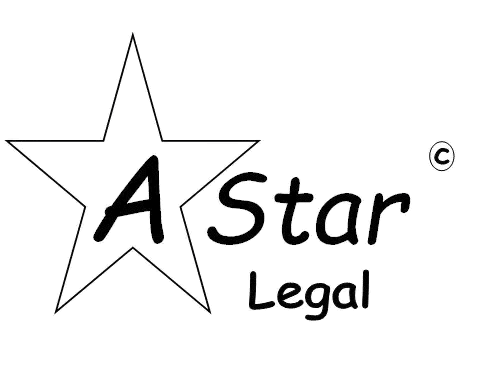Last updated on May 2nd, 2025 at 12:14 pm
ISO 19011 is an international standard that provides guidelines for auditing management systems. It includes guidance for managing an audit system.
ISO 19011 provides valuable knowledge on how to develop an audit program thoroughly, just as other departments in a company are expected to do. One aspect of such development is continuously guaranteeing that the audit program goals align with the management methods, policies, and goals. The company should consider the demands of customers and other interested parties.
ISO Certification in 24 Hours – Fast and Easy!
Contact Us Today!
Hire the Best ISO Certification Consultant Call +91 9314321001
Table of Contents
ToggleWhat is ISO 19011?
ISO 19011 provides guidelines for auditing management systems. The standard contains instructions on managing an audit strategy, the principles of inspection, and the evaluation of particulars responsible for controlling the audit strategy. It also includes the guidelines on the assessment and competence of the auditing team.
History of ISO 19011
The first edition of ISO 19011 was launched in 1990 with the name ISO 10011-1. ISO 10011-1 provides the guidelines for auditing quality systems. Later in 2002, the second edition was launched with the name ISO 19011. It was for the guidelines for quality and environment management system auditing.
But after with changes, the third edition was launched in 2011 with the name ISO 19011. It was for the guidelines of the auditing management system. But the latest version was refined and, with specific changes, was launched in 2018 with the name ISO 19011 for auditing management system guidelines.
Purpose
The main purpose of ISO 19011 is to conduct the audit effectively in the organization. ISO 19011 provides guidelines on auditing management systems that help to improve the credibility of the business.
Importance of ISO 19011
ISO 19011 is important because it helps firms to conduct effective audits and improve their systems. It helps to increase stakeholder trust and satisfaction. It also helps to manage risks in the organization.
What is an audit
An audit is an independent and systematic process-based approach for collecting evidence of a process, also evaluating whether it meets the specific requirements.

Different types of audits
- Internal audit- It is also known as a first-party audit. An internal audit is performed by the organization to check the quality management within the business.
- External audit- It consists of both second and third-party audits.
- Second-party audit- It is also known as a supplier and vendor audit. It is conducted by customers on their suppliers or vendors to ensure quality standards and compliance in the organization.
2. Third-party audit- It is an independent assessment of an organization’s processes and systems. It is the only certification that helps organizations to get the ISO certificate.
7 key principles of ISO 19011
- Integrity- The foundation of professionalism
It performs the work ethically with responsibility and honesty. Only undertake audit services and impartially perform their work.
2. Fair representation- The obligations to report truthfully and accurately
Audit reports should be reflected accurately and truthfully in audit activities. The communication should be accurate and clear.
3. Due professional care- The application of Diligence and judgement in Auditing
With due care, auditors should exercise the important task they perform.
4. Confidentiality- Security of information
This means that the confidential and sensitive information should be properly handled.
5. Independence- The basis for the impartiality of the audit and objectivity of the audit conclusion
Auditors must maintain neutrality during the audit process and ensure that the audit’s findings and conclusions are predicated on the audit evidence.
6. Evidence-based approach- The rational method for reaching a reliable and reproducible audit conclusion in a systematic audit process
Audit evidence should be verified properly. A proper use of sampling should be applied.
7. Risk-based approach- An audit approach that considers risks & opportunities
Auditors must identify and analyse risks and opportunities related to the scope, criteria, audit objectives, and plan.
Requirements of ISO 19011
Important requirements of ISO 19011 are-
- Establishing the audit program
- Risk management
- Audit planning
- Auditor competence
- Communication
- Audit evidence
- Audit reporting
- Follow-up
- Continual improvement
- 7 principles of auditing
ISO 19011 Certification Process
- Understand ISO 19011- Clearly understand the requirements and familiarize yourself with ISO 19011.
- Develop a training program- Auditors should have sufficient knowledge and skills to perform an ISO 19011 audit.
- Develop an audit plan- Clearly define the objectives and scope of the audit programme.
- Conduct an internal audit- perform an internal audit to check the effectiveness of the management system.
- Address non-conformances- Execute the corrective actions to handle the non-conformity identified during the audit process.
- Certification audit- Choose a certification body to conduct an external assessment to assess the firm’s compliance with ISO 19001 requirements.
- Certification decision- If an audit is successful, certification issues.
Documents required for ISO 19011
- Audit program, objectives, scope, and criteria
- Audit plan
- Audit schedule
- Audit team composition and competency
- Audit checklists
- Review procedures
- Audit records
- Audit sampling details
- Audiovisual information
- Evidence of compliance or non-compliance
- Audit report
- Non-conformity reports
- Opportunities for improvement
- QMS documentation
How to ensure compliance with ISO 19011
- Establish audit agreements
- Define program scope and objectives
- Conduct effective audits
- Review audit results and procedures
- Maintain competence and evaluate auditors
- Ensure continuous improvement
- Adhere to the principles of auditing
How to better perform & manage ISO 19011
To conduct a clear audit, focus on planning, effective implementations, and robust follow-ups. Utilize the risk-based approach for planning. Allocate the resources appropriately and ensure proper communication with stakeholders.
Establishing audit program objectives
Common objectives are-
- Evaluating compliance with internal policies
- Identifying opportunities for improvement in processes.
- Assessing the effectiveness of the management system.
- Ensuring continual improvement across departments or business units.
- Supporting risk management by identifying potential nonconformities.
- To make informed decisions, provide top management with information.
How ISO 19011 serves different business roles and responsibilities
ISO 19011 supports different business roles by guiding top management with decision making, quality team with auditing planning, auditors with method and competence, process owners with improvement insights, HR/IT with training, and remote audit tools.
Who should we utilize ISO 19011?
If your company conducts inside or outside audits of controlling methods, or if you manage a survey plan of action, then ISO 19011 and the ANSI apply to you.
Anyone included in audits or audit strategy can use ISO 19011. More specifically, ISO 19011 standards are for people in expect of managing an audit strategy and evaluating individuals involved in the audit strategy and audits. Anyone who has goals to improve an audit strategy will likely find the ISO 19011 certification valuable.
Who can take the ISO 19011 Certificate?
- Auditors
- Managers and Management Representatives
- Consultants
- Individuals new to auditing
- Quality and EHS managers
- Organizations
ISO 9001 vs ISO 19011
It defines what a quality management system should include to meet customer and regulatory expectations. ISO 19011, on the other hand, tells how to handle audit management systems effectively. So, ISO 9001 is for building a quality system, while ISO 19011 is for checking if it’s working well.
What is the difference between ISO 19011:2011 vs 19011:2018?
- Incorporation of a hazards-dependent approach into the audit theories.
- Expansion of instruction on managing the audit plan of action, including the program risk.
- Instruction expansion on conducting an audit, especially the section on audit planning.
- Confiscation of an annex containing modification needs for auditing specific management methods topics (due to a large number of particular management system ordinary, it would not be practical to involve qualification needs for all topics)
- Boost of Annex A to guide (new) concepts in the survey, such as company context, leadership and dedication, virtual audits, compliance, and supply chain.
What does ISO 19011:2018 accomplish
- It gives a framework for auditing the management system.
- It enhances the audit program management.
- ISO 19011:2018 supports effective audit execution.
- It facilitates the continuous improvement.
- ISO 19011:2018 focuses on auditor competence.
Why should we use ISO 19011
If your firm performs internal audits and external audits in the organization and regularly conducts audit programs, then ISO 19011 applies to you. It will help your business to perform effective audits. Any individual who is involved in an audit and audit program can adopt ISO 19011.
ISO 19011 Connection with ISO standards
ISO 19011 has a connection with many other ISO standards. That helps organizations to conduct effective audits of their systems. ISO 19011 has a connection with many standards, but the mostly used are-
- ISO 9001 for Quality Management System
- ISO 14001 for Environment Management System
- ISO 45001 for Occupational Health and Safety Management System
- ISO 27001 for Information Security Management System
What are the benefits of iso 19011?
- Improves audit quality and consistency
- Enhanced auditor competence and confidence
- Increased stakeholder trust and satisfaction
- Reduced cost
- Minimize risks
- Enhance credibility
Cost
The cost of ISO 19011 depends on-
- Scope and complexity of the audits
- Organization size and location
- Certification body
- Standard fees
- Training and certification
- Application fees
Processing time
A Star Legal Associates provides ISO 19011 within 24 hours and at a very affordable cost.
Validity
3 years
Consultants
If you are looking for ISO Certification, A Star Legal Associates provides ISO 19011 Standard at a very low cost.
So, don’t look further, just contact A Star Legal Associates for ISO 19011. So more knowledge and information about ISO 19011.
Hire the Best ISO Certification Consultant Call +91 9314321001
Conclusion
ISO 19011 furnishes the guidelines for Auditing management systems. It provides a systematic approach to plan, conduct, manage, report, and follow up the Audit in an organization. We need ISO 19011 to examine the system for smooth working, to examine the improvements in the system, and to improve efficiency, reduce waste, and save money.
FAQ
What is ISO 19011
ISO 19011 is an international standard that provides guidelines for Auditing Management systems.
What is the latest version of ISO 19011?
The latest version of ISO 19011 is ISO 19011:2018.
Who provides ISO 19011 in India?
A Star Legal Associates provides ISO 19011 in India.
ISO standard for quality management system
ISO 9001
What is the scope of the ISO 19011
The main scope of ISO 19011 is to manage an effective audit management system in the organization.
What is a first-party audit called?
The first party audit is also called an internal audit, which is conducted by the organization itself.



